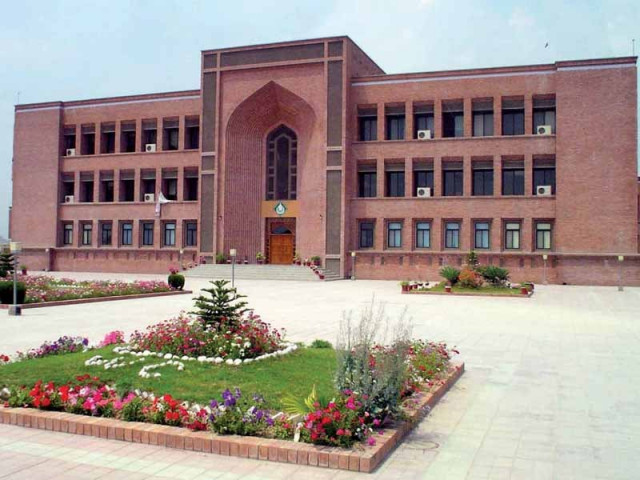IIUI holds anti-plagiarism workshop for students
Varsity official accused of plagiarism himself heads monitoring committee.

The workshop, titled “Awareness of Modern Research Procedure, HEC Recognised Journals and Plagiarism Policy” was conducted by IIUI Quality Enhancement Cell (QEC) with support from the HEC. PHOTO: FILE
But the varsity still organized a workshop, in collaboration with the Higher Education Commission (HEC), on recognised academic journals, plagiarism and a plagiarism detection software.

Plagiarism, considered to be the ultimate sin in academia, is still a concept about which Pakistani undergraduate and graduate-level researchers need more awareness. As Pakistani students look towards publishing their research in international peer-reviewed journals, they need to know the criteria to get their papers accepted and avoid plagiarising in the process.
The workshop, titled “Awareness of Modern Research Procedure, HEC Recognised Journals and Plagiarism Policy” was conducted by IIUI Quality Enhancement Cell (QEC) with support from the HEC.
QEC Acting Director Dr Irshad Ahmed Arshad informed participants about the categories of international journals and requirements to make one’s research get published.
Students were also informed that they could go through with the publication of their research on their own.
A demonstration of the plagiarism detection software “Turnitin” was also given during one session of the workshop.
Irshad said ineffective note-taking such as not attributing the source of quoted material and copy-paste tactics might put researchers in the “plagiarism trap”.
“Over quoted material may fall under plagiarism in the detection software,” Irshad said, adding that “To avoid data detection being flagged as plagiarised, researchers should rephrase, quote and summarise the data in their own words”.
Dr Jabar Zaman Khattak, head of the department of Bioinformatics and Biotechnology and QEC Assistant Director Imranullah Marwat also delivered lectures at the workshop.

It should be noted that Dr Muhammad Sher, who currently heads IIUI’s plagiarism committee, was found guilty of “Level 1 plagiarism by the Institute of Electrical and Electronics Engineers (IEEE)” for a research paper he wrote, according to a black list of faculty members available on HEC’s website. The IEEE, an international professional body of engineers, had notified the HEC about the plagiarism charge in December 2012. The plagiarism charge is being investigated by a local committee.
But prior to the IEEE notification, Sher was also found guilty of a separate plagiarism charge over a book compilation and had publicly apologised for it.
Published in The Express Tribune, November 25th, 2013.


1724319076-0/Untitled-design-(5)1724319076-0-208x130.webp)
















COMMENTS
Comments are moderated and generally will be posted if they are on-topic and not abusive.
For more information, please see our Comments FAQ